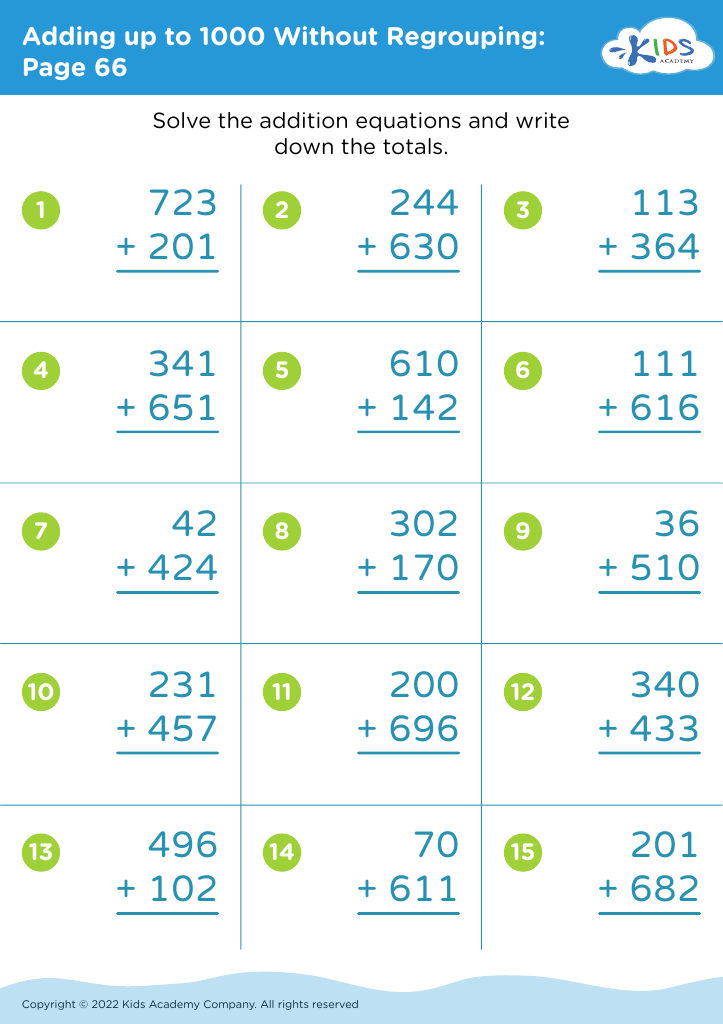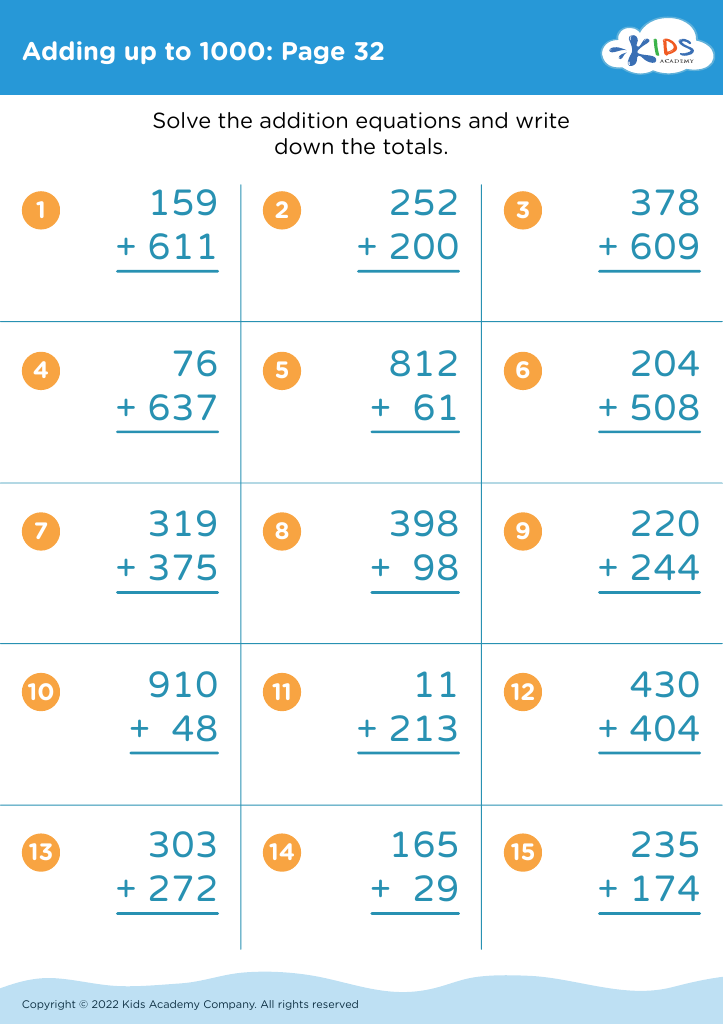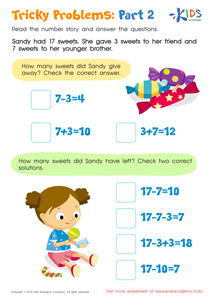Recognize shapes Grade 2 Adding up to 1000 Worksheets
4 filtered results
-
From - To
Explore our "Recognize Shapes Grade 2 Adding Up to 1000 Worksheets" for a fun and engaging way to enhance your child’s math skills! These colorful worksheets help second graders identify and classify various shapes while also mastering addition up to 1000. Designed to align with educational standards, each activity promotes critical thinking and problem-solving. Students will enjoy hands-on practice through interactive exercises that make learning both enjoyable and effective. Perfect for classroom use or at-home practice, these worksheets are a valuable resource to help your child build a solid foundation in math and geometry concepts. Start shaping young minds today!
Recognizing shapes and understanding the concept of addition up to 1000 are foundational skills for Grade 2 students, and it's crucial for parents and teachers to prioritize these areas. First, recognizing shapes enables children to understand geometric concepts, spatial relationships, and measurement, which are vital not only in mathematics but also in everyday life. It fosters problem-solving skills and visual communication, equipping students for advanced mathematics and sciences as they progress in school.
Secondly, adding numbers up to 1000 is significant for developing computational fluency, a key component of mathematical literacy. This skill not only aids in performing basic operations but also enhances cognitive skills like critical thinking and number sense. Mastery in addition at this level forms the groundwork for more complex mathematical concepts in future grades, such as subtraction, multiplication, and division.
Additionally, these skills contribute to the child's confidence and readiness for real-life situations, like budgeting or measuring dimensions. By engaging students in activities that focus on shapes and addition, parents and teachers cultivate a stimulating learning environment that encourages exploration and intellectual growth. Prioritizing these foundational skills ensures that children are well-prepared for future academic challenges and problem-solving scenarios.



















